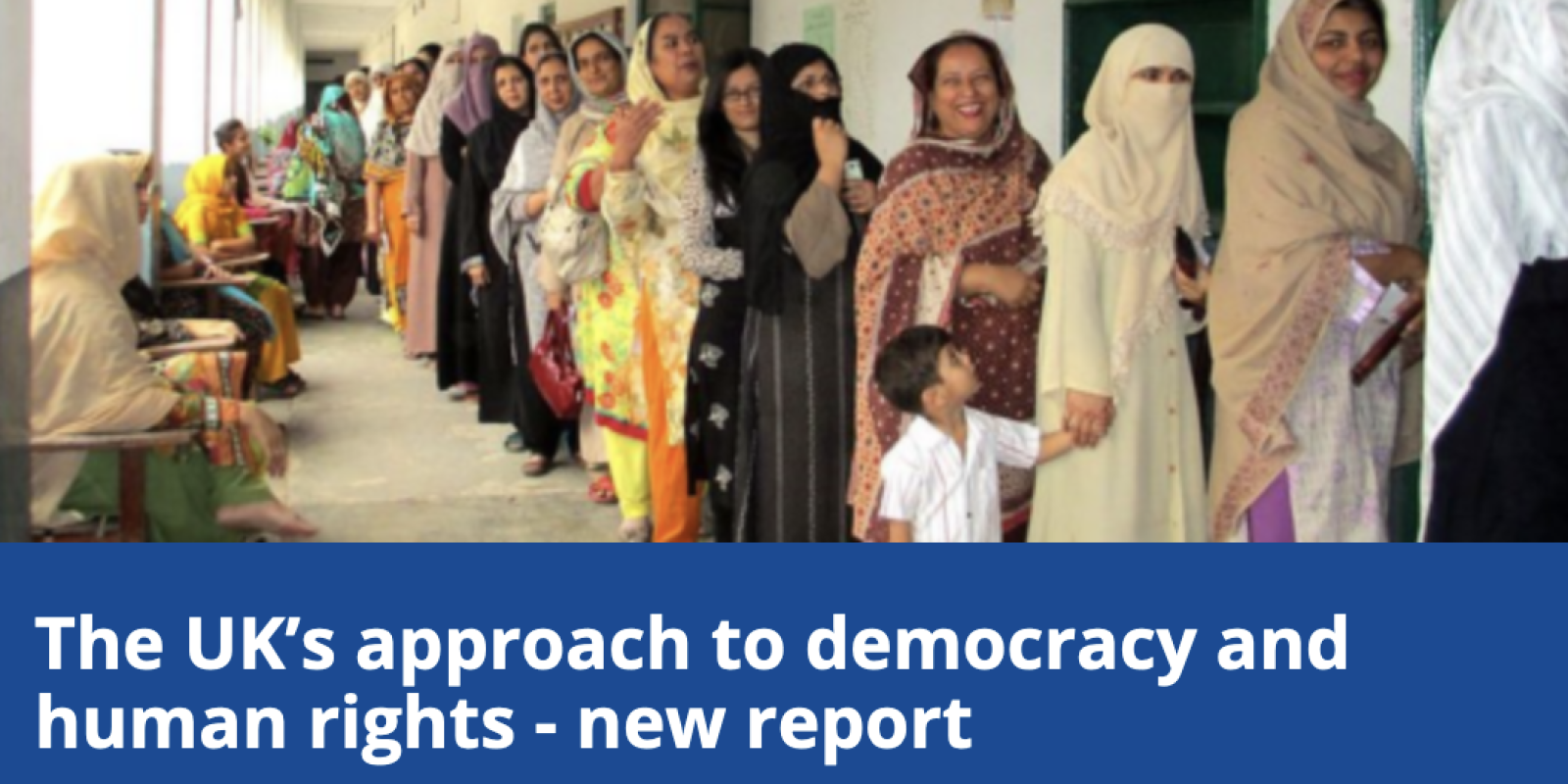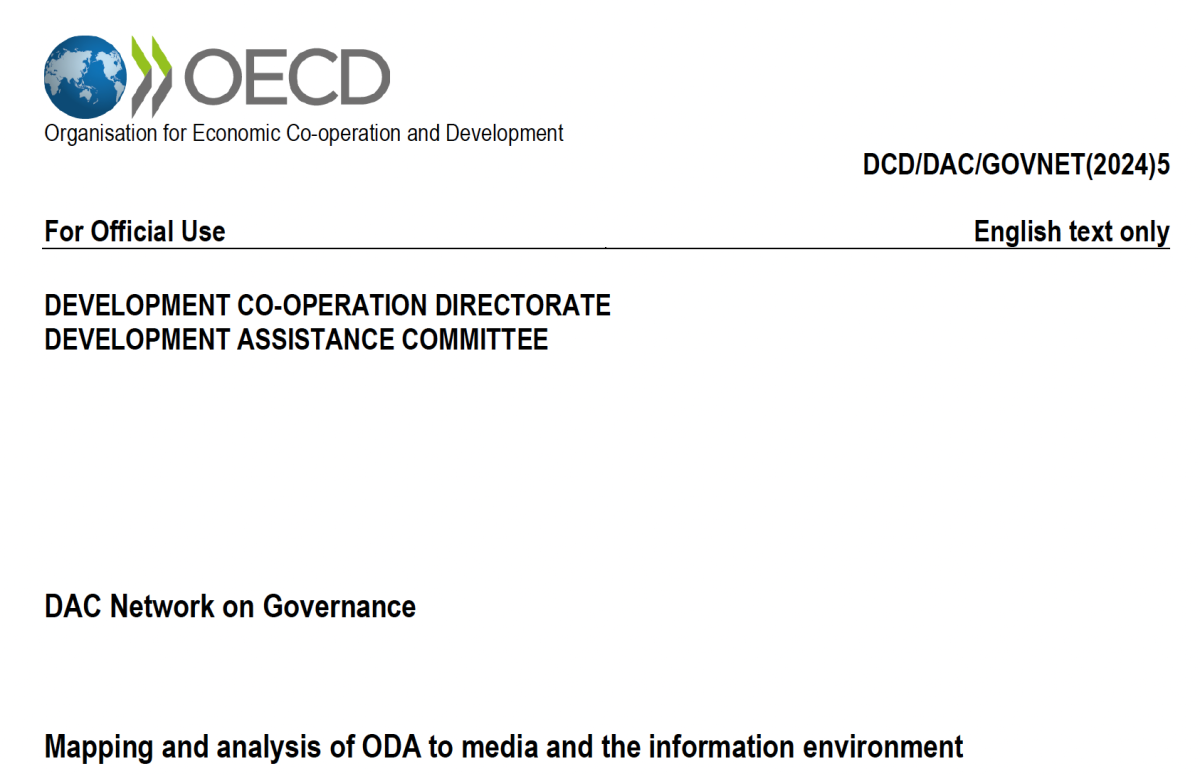
ICAI democracy and human rights review
Laure-Hélène Piron served as the team leader for the UK Commission for Aid Impact's review of UK support to democracy and human rights.
Findings
- We found that the UK’s £1.37 billion programming over the 2015 to 2021 period was generally relevant, as a result of good levels of staff expertise, technical guidance, access to evidence, and the ability to adjust activities in response to changes in context and lessons learned.
- Programmes were able to document useful results, including in difficult political contexts, especially when they operated over longer timeframes.
- These included making government, political, media or civil society bodies more effective, and improving rights and access to democratic institutions for at-risk groups.
- However, UK aid programmes were not always able to address key challenges such as assisting journalists, human rights defenders and civil society organisations under threat from government repression.
- This was due to a combination of factors, including a priority for maintaining access to partner governments but also concern about doing harm to at-risk groups.
- Some other donor countries were more willing to tolerate these risks.
- We found that combining aid programming with diplomatic interventions often proved to be particularly effective, but the merged Foreign, Commonwealth and Development Office has not yet met its potential in this area.
- The UK lacks a strategy to operationalise the 2021 Integrated review’s democracy and human rights commitments.
- And its high policy ambition is not matched by sufficient or predictable budgets as democracy and human rights expenditure was reduced by 33% in 2020 and stayed at a similar level in 2021.
- Internationally, the UK government has been influential in donor coordination, through its combination of aid budgets, technical expertise and diplomatic influence.
- However, a considerable amount of expertise has been lost since the merger, and the UK government’s reputation as a thought leader and reliable global actor on democracy and human rights has declined.
- Altogether, the conditions may no longer be in place to reproduce past successful results.
- The UK reiterated its global commitments to democracy and human rights, such as statements at the G7 in 2021 and the Summit for Democracy in 2022.
- But we find that the UK does not have the same level of systematic mainstreaming of human rights and democracy as some other donors.
Recommendations
- FCDO should set out publicly its approach to democracy and human rights.
- FCDO should ensure it retains sufficient expertise, in particular in governance, to design and monitor its democracy and human rights interventions.
- FCDO should introduce a leaner process to design and approve smaller programmes, while ensuring that due diligence is sufficient to allow approval for longer than one year.
- FCDO should consider whether it can learn from other countries, and take more risks to support individuals and organisations facing the most serious threats from repression.
- FCDO should ensure all its central democracy and human rights programmes work closely with its overseas network where democracy and human rights have been prioritised, in particular in the case of the Westminster Foundation for Democracy
Political economy analysis for climate action - new course launched starting October 2024
The Policy Practice is delighted to be re-running the popular online course on Political Economy Analysis for Climate Action. This course explains how political economy analysis can be used to understand the challenge of action on climate change and to design more effective interventions. The course will consist of eight, 2-hour online sessions from 4 October to 12 November 2024. For more information and to register please click below or see our flyer here.
The political economy of energy transitions in Ghana, Zambia and Vietnam - Policy Brief 17
Written by Sam Bickersteth with Neil McCulloch and Meron Tesfamichael, this policy brief draws out some of the common constraints hindering the energy transition in Ghana, Zambia, and Vietnam and many other countries in the Global South. It also shows how political economy analysis can help to identify politically feasible pathways of change in each country demonstrating the importance of such analysis as an essential tool to understand energy transition.
Media support: aid funding does not match donor rhetoric
Laure-Hélène Piron (TPP Director) presented her analysis of official development assistance to media and the information environment to the Governance Network of the OECD Development Assistance Committee on 6 March 2024.
The draft report shows that the rhetoric of governments which support freedom of expression and condemn disinformation is not matched by sufficient funding. And too little directly goes to local media organisations.



